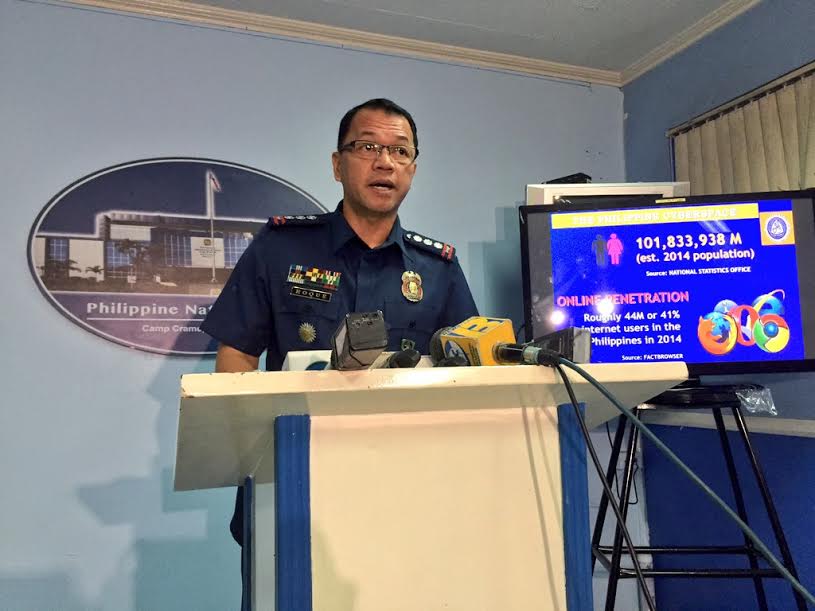Number of cybercrime cases surged in last 2 years—PNP-ACG
As the number of Internet users in the country rose to 44 million, opportunity for cybercriminals to do illegal activities online also increases, said the Philippine National Police’s (PNP) Anti-Cybercrime Group (ACG) on Thursday.
Newly-appointed ACG director Senior Superintendent Edwin Roque said cybercrime-related complaints shot up to 1,211 from 150 since the ACG’s foundation in 2013. The upsurge in cyber crimes also meant more challenges for the two-year-old police unit.
“The ACG is ready to face and solve all complaints. But the ACG, to date, has 162 personnel. That’s why one of our thrusts is to add more personnel to directly access the complaints especially in the regions,” Roque said.
As part of the ACG’s capability enhancement program, Roque said the ACG proposed to the PNP leadership to deploy 900 personnel to the cybercrime unit.
READ: PNP issues guidelines to avoid cybercrimes | PNP seeks to expand cybercrime units nationwide
In a PowerPoint presentation shown by Roque, the top five complaints received from 2013 to present are online scams with 366, online libel with 240, online threats with 129, identity theft with 127, and anti-photo and video voyeurism with 89.
He said 41-percent of the 101-million populace of the Philippines are using the Internet. Based on nationwide count, the Philippines currently has 93.2 million mobile phone users, 30.66 million Facebook and 5.21 million Twitter users. The average time spent on the Internet by users is 18.6 hours per week or 2.6 hours per day.
Scams ‘challenging’
Among the common cases the ACG addresses, Roque said scams done online and through text messages are more challenging for the ACG. He said this was because most scammers use prepaid SIM cards, which are difficult to trace as these are not registered unlike postpaid SIM cards.
“We really cannot trace the subscriber’s identification precisely because prepaid SIM cards are not registered. We have to make a request first to the National Telecommunications Communication to inform the telcos to block a certain number,” he said.
The proposed bill of SIM card registration, he said, would make the ACG’s work easier.
“Sinusuportahan namin ‘tong proposal na ‘to para makakuha tayo ng identification ng source (We support this proposal so we can identify the source (of the crime)),” Roque added. Julliane Love de Jesus/IDL
